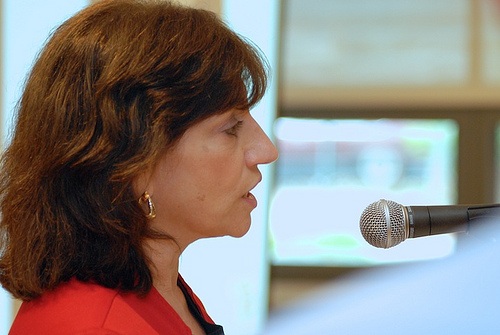
July 14, 2013; Philanthropy.com
Following the very public crisis that found itself on Susan G. Komen’s national doorstep in 2012, the debate on the organization’s own online forum had a longtime supporter asking, “Will Komen Survive?” A little over a year since that discussion, Komen has brought on new leadership and a new hope that the organization can carve out a new path.
Sign up for our free newsletters
Subscribe to NPQ's newsletters to have our top stories delivered directly to your inbox.
By signing up, you agree to our privacy policy and terms of use, and to receive messages from NPQ and our partners.
“It’s a whole new day for Komen,” said Cati Stone, chief executive at the charity’s Atlanta affiliate, in a recent Chronicle of Philanthropy article on the hiring of Dr. Judith Salerno as Komen’s national CEO. Stone believes that Dr. Salerno’s experience as head of the Institute of Medicine at the National Academy of Sciences will serve her well.
While many are excited about Komen’s direction, others worry that recent decisions by Komen still show that it has not shed the difficulties of its past. For example, Nancy Brinker, the founder of the organization, continues to cast a large shadow on the organization by still maintaining prominent positions. Ms. Brinker has retained a lifetime position on Komen’s national board, is still a member of the board’s executive committee, and has the new title of chair of global strategy, albeit with a salary reduced from her recent 2011 documented pay of $696,147.
In Brinker’s new role, Ms. Brinker will now report to Dr. Salerno, causing some to be concerned about this new relationship. Professor Mark Lipton of the New School remarked in the article, “I never heard of a chair reporting to the CEO.” Brinker went on to discuss how she expects to work with new leadership. “I expect to be in contact with her often to share insights as she builds on our mission programs with our extraordinary team of Komen mission leaders.”
While the symptoms of founder’s syndrome hover over the organization, additional challenges also remain—namely, Komen’s fundraising efforts. When Komen decided in February 2012 to stop supporting Planned Parenthood and then quickly changed its mind, many donors decided to also change their minds about supporting the organization. Komen has seen drops in the number of people and donations supporting the organization’s popular races throughout the country. In Washington, D.C., and Indianapolis, as examples, the local affiliates each raised approximately $1.5 million in May, down from $2 million in 2012 and $5 million in 2011.
The fallout from the 2012 debacle has caused some to wish that the organization had made a more committed split from its leadership. Iris Dankner, a New York interior designer and breast-cancer survivor, stated that Brinker is “not stepping down, she’s stepping sideways” and ultimately believes that “stepping down would have been a good decision.”—John Brothers












